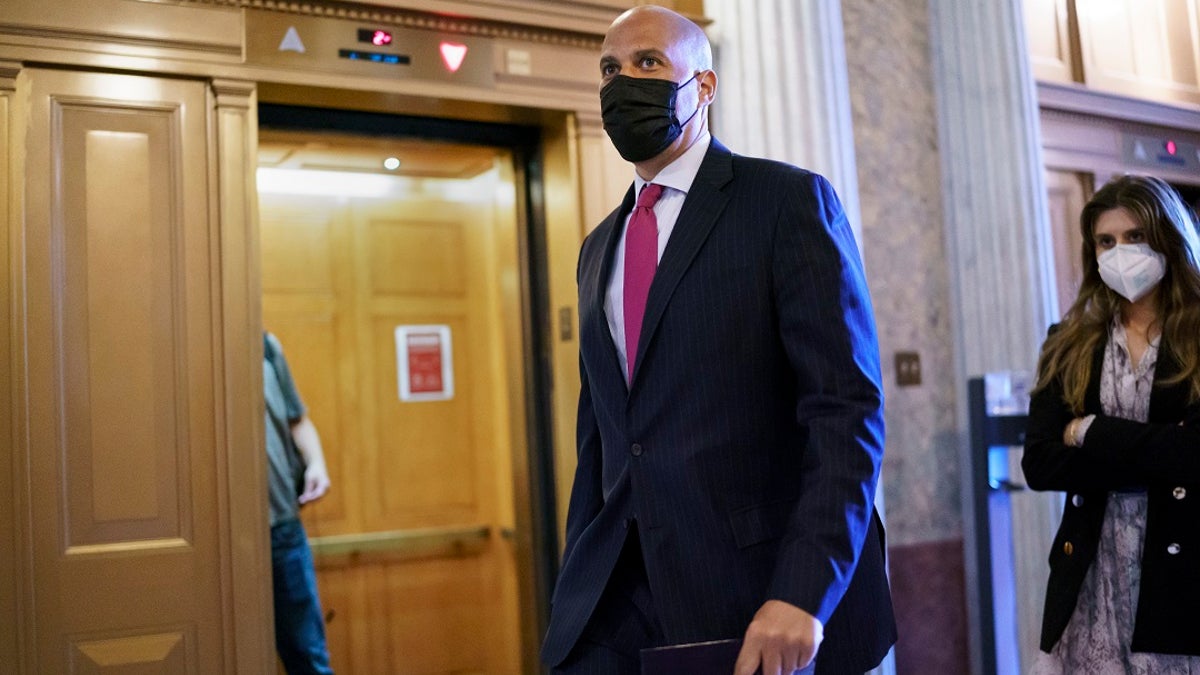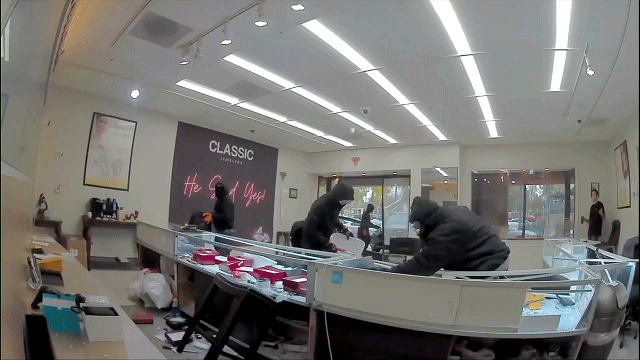Fox News Flash top headlines for September 22
Fox News Flash top headlines are here. Check out what's clicking on Foxnews.com.
Bipartisan talks to enact police reform measures at the federal level following the loudest calls for such legislation after the death of George Floyd collapsed Wednesday, lawmakers said.
Sen. Cory Booker, D-N.J., a key player in the negotiations, said a deal "remains out of reach right now" despite working with law enforcement groups. When speaking with reporters, he said he told Sen. Tim Scott, R-S.C., the lead Republican negotiator, of his decision.
"We made it clear from the beginning of our negotiations that a bill must ensure true accountability, transparency, and the policing standards necessary to bring an end to horrific incidents of violence Americans are routinely seeing -- like the murder of George Floyd," Booker said in a statement. "Unfortunately, even with this law enforcement support and further compromises we offered, there was still too wide a gulf with our negotiating partners and we faced significant obstacles to securing a bipartisan deal."
President Biden expressed disappointment Wednesday while accusing Republicans of failing to compromise.
MINNEAPOLIS OFFICERS 'HANDS-OFF' SINCE GEORGE FLOYD DEATH, AS JUDGE WEIGHS MEASURE TO REPLACE POLICE

Sen. Cory Booker, D-N.J., arrives at the Senate chamber at the Capitol in Washington, Wednesday after bipartisan congressional talks on overhauling policing practices ended without an agreement. (AP Photo/J. Scott Applewhite)
"Regrettably, Senate Republicans rejected enacting modest reforms, which even the previous president had supported, while refusing to take action on key issues that many in law enforcement were willing to address," he said.
The House passed the George Floyd Justice in Policing Act in March, mainly along party lines, and lawmakers were working on a bipartisan bill that could pass the Senate. The sweeping legislation would have implemented a federal ban on no-knock warrants and chokeholds, limits on qualified immunity, a framework to prevent racial profiling and the establishment of a national registry on allegations of police misconduct.
Talks between lawmakers and law enforcement officials dragged for months and stalled over the summer as both sides sparred over several issues, including qualified immunity, which protects officers from civil liability for misconduct.
Rep. Karen Bass, D-Calif., said negotiations had watered down the bill to a point where it would not have had its desired effect.
"We accepted significant compromises, knowing that they would be a tough sell to our community, but still believing that we would be moving the needle forward on this issue," she said. "But every time, more was demanded to the point that there would be no progress made in the bill that we were left discussing."
Scott blamed Democrats for squandering "a crucial opportunity to implement meaningful reform to make our neighborhoods safer and mend the tenuous relationship between law enforcement and communities of color."
"Crime will continue to increase while safety decreases, and more officers are going to walk away from the force because my negotiating partners walked away from the table," he said.
Attorneys Ben Crump and Antonio Romanucci, who represent many families who have had loved ones killed by police officers, including the family of George Floyd, expressed disappointment while Democrats to bring the fill up for a floor vote "so Americans can see who is looking out for their communities' best interests and who is ready to listen to their constituents so we can together put the country on a better, more equitable path for all."
Patrick Yoes, president of the National Fraternal Order of Police said his group spent countless hours with lawmakers to draft a bill to improve policing while preserving protections for officers.
"While we are disappointed that bipartisan legislation on criminal justice reform could not be agreed upon, the FOp remains committed to working with our partner in Congress and the [Biden] Administration to fin opportunities to strengthen the bonds between police officers and the communities they serve," he said.
CLICK HERE TO GET THE FOX NEWS APP
Calls for police reform intensified following the death of Floyd, who died after a Minneapolis police officer pressed his knee into Floyd's neck for several minutes. Video footage of the deadly encounter sparked a massive call for police accountability and touched off months of protests and riots in some areas.












































